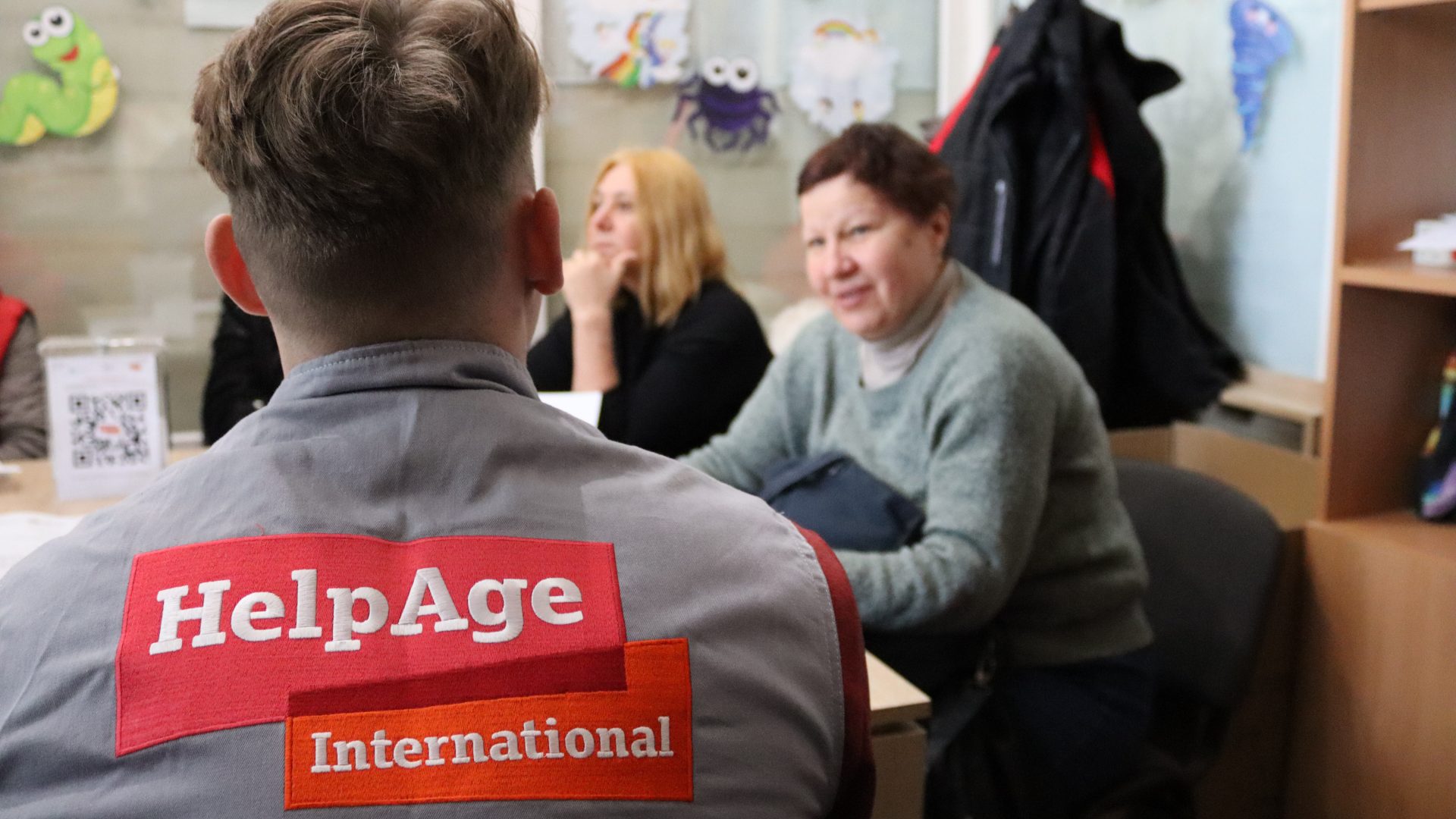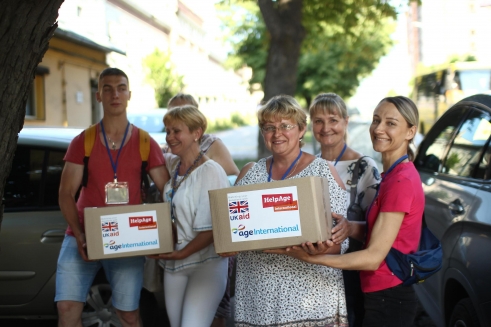Zhanna and her husband moved to western Ukraine in 2022 during the initial weeks of Russia’s full-scale invasion. At 76, this marks the second time she has been displaced from her home. She was forced to leave her native Donetsk back in 2014 and a few years later, in 2022 the war forced her out of Mariupol.
Zhanna does not like to talk about their time in Mariupol – a city now levelled to the ground that buried her friends and neighbours in the rubble. Those months of intensive fighting were a heavy physical and psychological burden on the city’s residents. But Zhanna and her husband have additional health problems that have only been aggravated by the war.
“I am battling cancer, and my husband suffers from Parkinson’s. We fled Mariupol carrying only our backpacks full of medicines. The stress has made both of our health conditions worse. Now he cannot walk at all anymore – I have to carry him to the bathroom every time.”
Unfortunately, Zhanna is but one example of how the war has exacerbated the situation of older Ukrainians who make up over a quarter of the country’s population. While younger people have sought safety abroad, most of the nine million Ukrainians aged 60 and over have remained in the country.
As the war rages on, the situation of older Ukrainians is challenging both at home and in displacement. Apart from the direct threat of mines and missiles, they face difficulties accessing health and care services. Since the onset of the full-scale war, at least 16% of public health facilities have been damaged or destroyed. At the same time, the country is seeing a steep rise in disability rates – by about 300,000 since February 2022.
The war has also disrupted treatment of life-threatening health conditions such as Zhanna’s. In areas of active hostilities, care has completely stopped for oncological diseases, while the healthcare system in the safer regions struggles with the influx of displaced people.
Each month, 64-year-old Liudmyla must travel over 500km to Kyiv for her treatment. “My cancer is quite advanced, and it has metastasised. I’ve started to experience some new symptoms, which means it is progressing further.”
Moreover, the economic decline driven by the war has rendered millions jobless and eroded social contributions. As a result, about 80% of older Ukrainians live below the poverty line and 90% of them are unable to pay for even basic medical needs.


